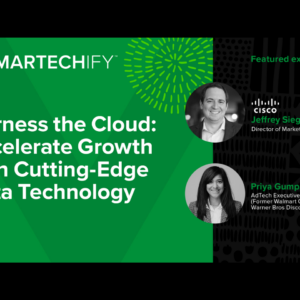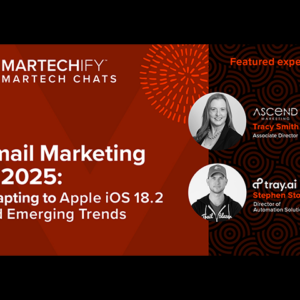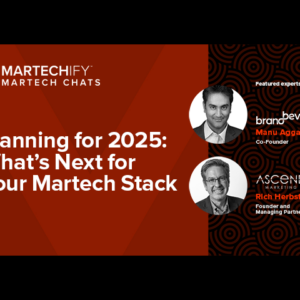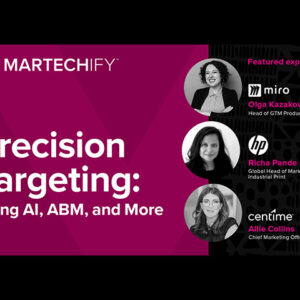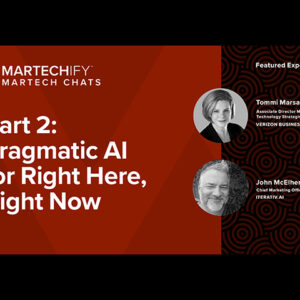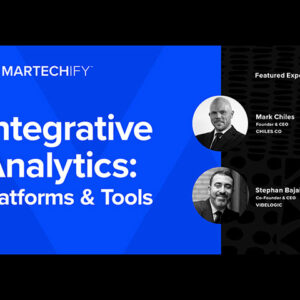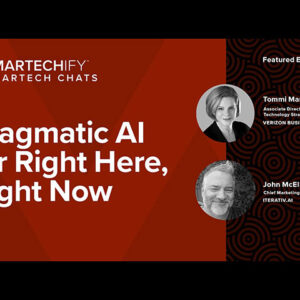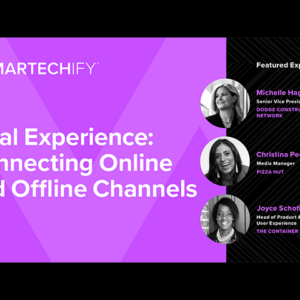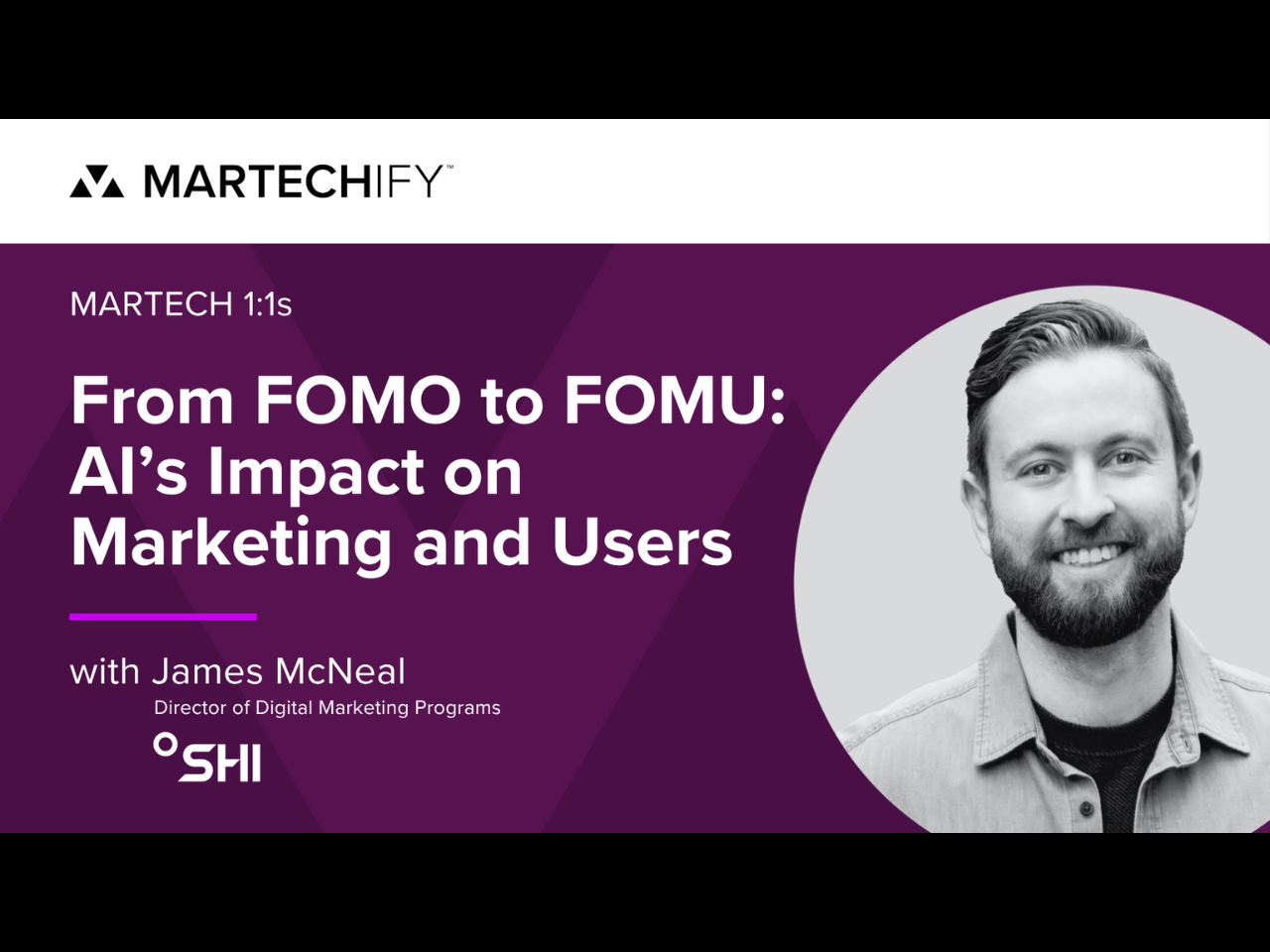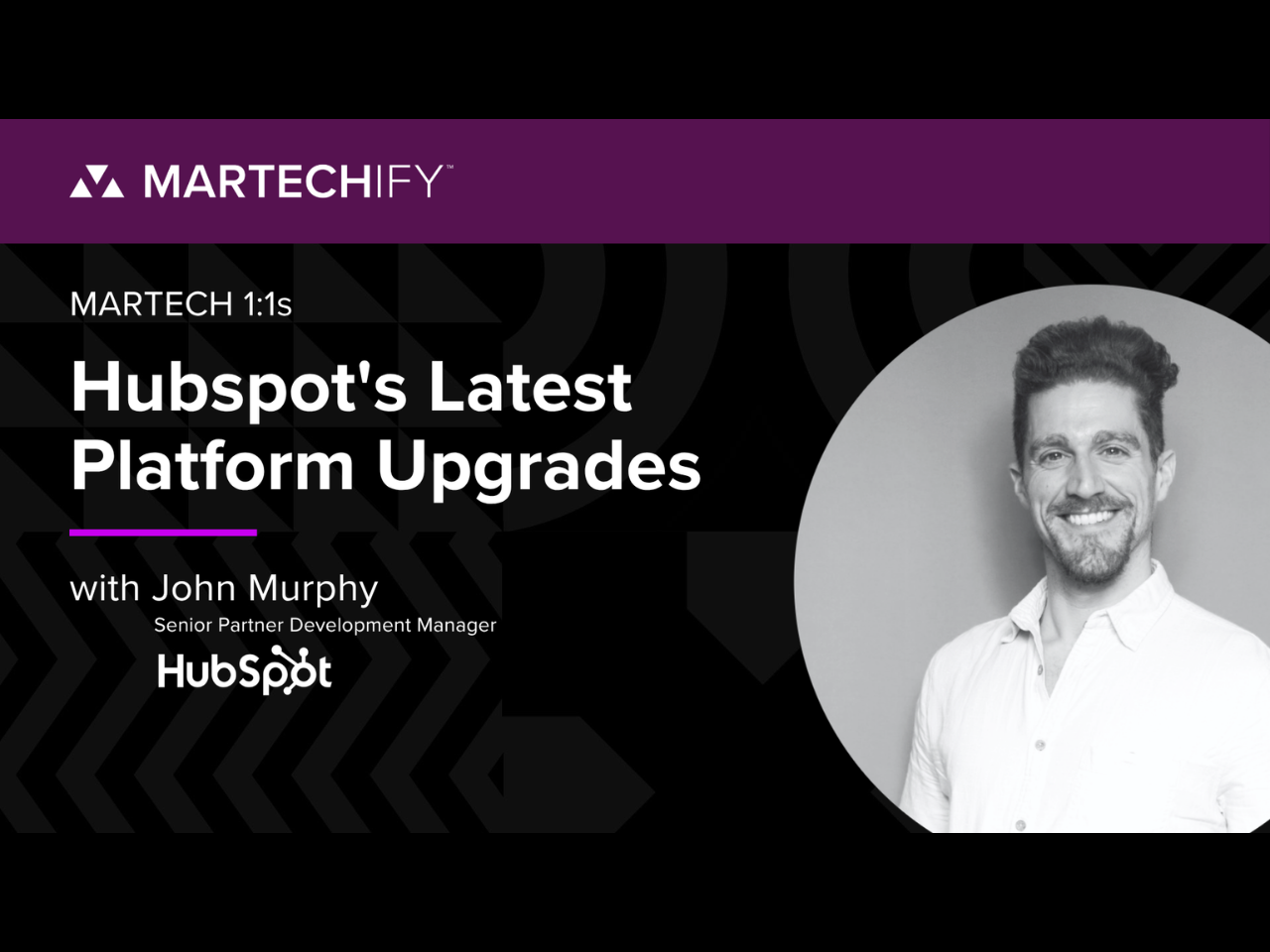A Playbook for Modern Marketers: Curiosity, AI, and the Hidden Skills That Really Matter
- Christopher Rubin, Chief Creative Officer at BrandMultiplier.ai
- AI and Automation, Content Strategy and Marketing, Customer Experience (CX), Strategy and Trends
Chris Rubin has never been content to follow the typical marketing playbook. As Chief Creative Officer at BrandMultiplier.ai, he’s built a reputation on blending emotional storytelling with emerging technologies. Prior to founding BrandMultiplier, Chris gained decades of valuable marketing and creative experience at companies such as Hard Rock International, CBS Interactive, SapientRazorfish, Accenture, and other leading firms and agencies. But behind the titles and tools lies a deeper philosophy: a mindset shaped by curiosity, collaboration, and continuous experimentation.
In a recent conversation with Martechify, Chris shared the key experiences, underrated skills, and daily practices that fuel his growth—and offered a roadmap for modern marketers aiming to stay sharp in an AI-first world.
The mindset that fueled his professional growth
“Emotions drive decisions,” Chris told the Martechify team during our interview. “Unconscious processing is related to Jungian psychology… it’s deeply rooted in my methodology, and my family as well. My first date with my future wife was bonding over Jung.”
His secret weapon? Cross-disciplinary curiosity—an eagerness to learn how different domains intersect to shape human behavior. As Chris watched passionate fans of Hard Rock Café traveling to locations in different states and countries around the world—collecting pins and merchandise, bringing their kids, and hosting weddings, birthdays, and family reunions—he wondered how to generate the kind of love and loyalty that translates across generations. “People scrape and save their pennies for years just to go have this one experience—to be surrounded by this thing called a brand.” He started exploring psychology and consciousness and soon found ways to bring those insights into his work. “Early stints with brands like Hard Rock Cafe and Disney showed me how psychology, design, and operations intertwine to create loyalty.”
Equally important was cultivating an “apprentice” mindset. When Chris spots a knowledge gap, he doesn’t retreat, he dives in. He volunteers for projects that put him shoulder-to-shoulder with the people who already excel in that area.
This habit of learning-by-doing was key to his bias toward measured experimentation. From adopting SiteCatalyst in the early 2000s to building GPT-4o into brand strategy workflows in 2024, Chris pilots fast, measures impact, and then scales what works.
The underrated skills that make the difference
— Facilitating tough conversations: “Cultural friction derails more martech projects than the tech itself,” he notes. Good facilitation ensures momentum doesn’t stall when conflicts emerge.
— Systems thinking: In the age of Gen-AI, marketers must understand how campaigns, data flows, and products connect. Those who see the full ecosystem thrive.
— Writing to teach, not impress: For Chris, clear internal documentation trumps clever language. It’s what accelerates team learning and drives sustainable adoption of new tools.
These aren’t just soft skills, they’re strategic accelerators.
The AI tool that transformed his workflow
But Chris is quick to emphasize the human role: “We pair the model with critical judgment before anything ships—efficiency plus meaning.”
The top 5 tools every marketer should know
1. GA4: The anchor for first-party behavioral data
2. HubSpot Marketing Hub: CRM + automation without the dev overhead
3. Zapier/Make: The “glue layer” that now includes AI agents for dynamic workflows
4. Generative AI platforms: ChatGPT, Claude, Perplexity for ideation and variant testing
5. Supermetrics or Power BI: To transform raw data into actionable executive insights
These tools empower lean teams to operate like enterprise giants, with less complexity.
Chris’s top certification picks for aspiring marketers
— Google Analytics (GA4): For mastering behavioral data
— HubSpot Inbound Marketing: A foundational view of customer-centric strategy
— Digital Marketing Institute’s AI for Business & Marketing: To build AI fluency
— Meta Blueprint/LinkedIn Marketing Labs: For paid-social mechanics
— Wharton Online: Marketing Analytics: To round it all out with data literacy
Together, these programs provide both tactical skills, and strategic thinking.
How he keeps skills sharp
— Weekly “sandbox” hours: He blocks time to test one new feature, and document learnings.
— Quarterly “teach-backs”: Strategists and data engineers exchange knowledge in micro-mentoring loops.
— Community signal > Vendor noise: He leans on trusted peer groups (CMO Slack, ANA roundtables, IAB releases) rather than hype.
— Focused reading list: He prioritizes reports like BCG’s Gen-AI CMO survey, IAB standards, and Marketing Week’s salary insights to stay tuned into what matters.

